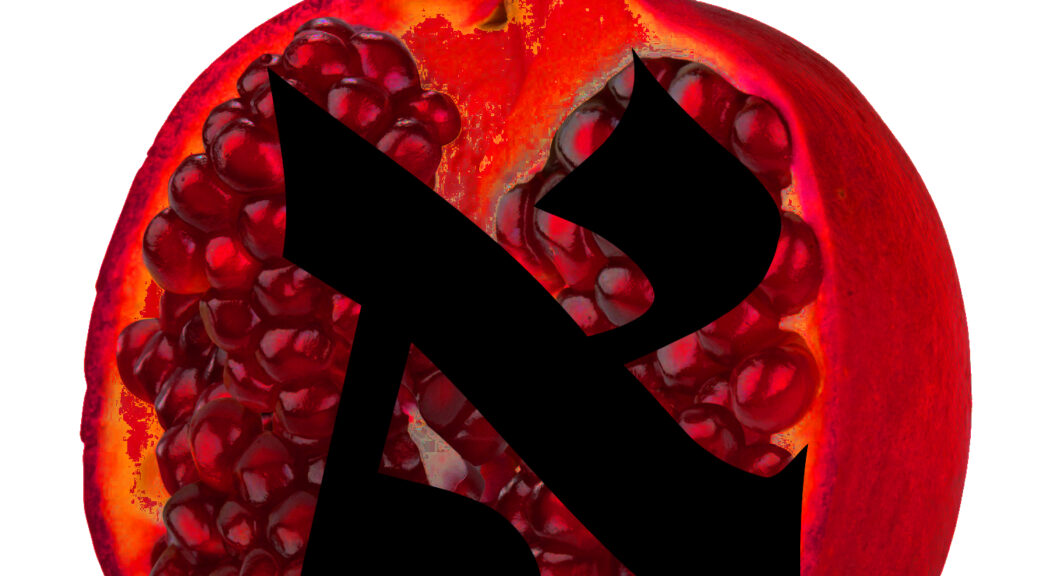any meaningful long-term jewish response to the current acceleration of the zionist genocidal project in palestine is going to need to reckon with the ways that the central texts of the rabbinic (and priestly, and, yes, priestessly) tradition actively and repeatedly call for and celebrate genocide.
i’m talking about the commandment to exterminate the amalekites and steal their land. i’m talking about the physical destruction of the bnei amram’s political opponents – specifically, the group opposed to hereditary theocratic rule whose spokesperson was korakh. i’m talking about the mass killing of the children of mitsraim. i’m talking about the supposedly pre-emptive massacre of 75,810 people (explicitly including children) in ahashevrosh’s empire.
these are genocidal acts – the extermination in whole or part of an identifiable social group, because they are members of that group. and those are just the quickest four to come to my mind. the quickest four large-scale actions, that is: i’m not even bothering to include the countless incitements to genocide, like the one in psalm 137, which begins with weeping by the rivers of babylon and ends with a blessing on those who systematically murder the infant children of peoples defined as “enemy”.
all of these actions (and more) are presented as inherently good. some are divine actions, so their positive character cannot be disputed within a rabbinic/priestly frame. some are the actions (with or without divine assistance) of moses, whose correctness is only slightly more debatable within the rabbinic/priestly tradition. some are explicitly intended to continue into the present, considered as binding positive commandments rather than mythic accounts. some are the basis of celebratory holidays.
they are what comes immediately before and after practically every mythic story that liberal and progressive religious jews love to tell as examples of heroism in the service of justice. the bravery of nakhson and crossing of the sea follows the mass murder of children and leads into the extermination of the bnei amram dynasty’s political opponents. the esther story ends with the slaughter of tens of thousands – not in self-defense, but after the danger had definitively passed. i could go on.
support for genocide is not extractable from a rabbinic/priestly approach to jewishness. it is not a subject of debate within that tradition, except in the sense that some writers pick and choose which genocides and calls for genocide they actively defend and which ones they remain silent about. it is the heart of the “prophetic tradition”, whose heroes constantly call for purification through mass murder – often the mass murder of specific groups of the people they are supposedly trying to save – and when the genocide they call for does not arrive (as in the story of jonah) they are enraged. it is woven through every prayerbook and many rituals, and through commentaries, analyses, and rulings on subjects of all kinds, generally with directly fascist implications (for example, blaming the “erev rav” – the internal diversity of the jewish people – for resistance to the hereditary theocratic rule of the bnei amram).
and it has direct, bloody consequences in the real world. we are seeing them now, as the full spectrum of zionists call for the genocide of palestinians with rhetoric and specific goals drawn from precisely this tradition. pre-emptive mass murder. the slaughter of children. massacres of those who speak against autocracy. wholesale extermination in pursuit of land theft.
after all, zionism, even when some of its advocates claim secularism, is very specifically part of the rabbinic tradition. its only justification for jewish rule in palestine – its defining political project – is the rabbinic canon: the fantasy of a divine land-grant, the fiction of a powerful ancient israelite kingdom, and the rest of the mythology zionism pretends is history come exclusively from those texts.
so it’s no wonder zionism is a movement that makes constant use of the genocidal tools celebrated in the tanakh and its religious tradition. it is pursuing a goal defined in terms taken from that tradition, through a practice modeled on the genocidal conquests the tradition celebrates as steps towards that goal.
if you want to “embrace tradition” through the rabbinic/priestly path advocated by the ‘progressive’ religious sphere – yes, including Kohenet; yes, including Svara – genocide is a pervasive part of what you’re being asked to embrace.
luckily, the rabbinic/priestly tradition is not the only way to be jewish. at the core of the jewish left for the past 150 years – from marrakesh to madras to montréal to melbourne, from buenos aires to baghdad to brooklyn, from istanbul to indianapolis, from tehran to toledo to tetuan – has been a rejection of that tradition as the defining center of jewishness. that is what has made possible a jewish politics of solidarity, a jewish ethics of liberation, a jewish practice of heterogeneity, a jewish radical diasporism – all imperfect, all evolving, but now possible. one no that leads to many yeses (as the zapatista proverb says).
Continue reading genocide warrants